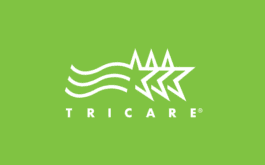Get Expert Treatment for ARFID
Since 1997, Center for Discovery has provided:
- Personalized, evidence-based treatment for ARFID
- Various levels of care (in-person and virtual)
- Innovative dietary program
- Proven results: Patients who received care at CFD experienced weight restoration of 2.2 lbs. per week*
CONTACT US
What is ARFID?
Avoidant/restrictive food intake disorder (ARFID) – oftentimes described as “extreme picky eating” – is an eating disorder impacting thousands of individuals. Although ARFID is mainly diagnosed in children, adults can be impacted by this eating disorder, too. The idea of picky eating can link to fears around food. But the meaning of “fear food” in patients with ARFID differs from patients with anorexia nervosa and bulimia. For individuals with ARFID, the fear may stem from the following:
- Feeling forced to eat when they have no interest in eating
- Eating food that is not at their preferred temperature
- Risking the potential of choking on or becoming sick from food
- Being made to try new or unfamiliar food.
FIND HELP FOR ARFID
Is there more than one type of ARFID?
Similar to other conditions, there is more than one type of ARFID. Here is how this eating disorder can be categorized:
- Lack of interest: People with this type of ARFID are genuinely unconcerned about eating or don’t find food appealing. They also can get full quickly, making any interest in consuming food more difficult.
- Sensory avoidance: Individuals with sensory avoidance ARFID have issues with food tastes, textures, temperature and smells.
- Fear of aversive consequences: This category of ARFID is when an individual is afraid of illness, choking, nausea and allergies that can be related to food. They will think about the possible negative outcomes of consuming food and end up developing a dislike toward food.
CONTACT US
What are the symptoms and warning signs of ARFID?
If you suspect you or someone you love has ARFID, there are several signs and symptoms to look out for:
- Eats from a short list of acceptable foods
- Only eats food with similar characteristics, such as crunchy in texture, colorless, etc.
- Prefers certain food preparation methods
- Avoids vegetables, protein sources (meat, beans, etc.), fruit
- Eliminates certain food and never adds them back into the diet
- Poor weight gain and growth (particularly in children)
- Nutrient deficiencies (iron, vitamin A and vitamin C are most common)
- Skips one or more entire food groups
- Becomes emotional or demonstrates stress around unfamiliar foods
- Food limitations negatively impact normal social behaviors
FIND HELP FOR ARFID
What are the risks and complications of ARFID?
When a person has ARFID, it can have adverse effects on their physically and mental well-being. This type of eating disorder can cause the following complications:
- Failure to gain weight (particularly in children)
- Gastrointestinal difficulties
- Malnutrition
- Weight loss
- Developmental delays
- Co-occurring disorders such as anxiety
GET IN TOUCH
What causes ARFID?
ARFID does not have one root cause; instead, researchers and clinicians have explored a variety of potential contributing factors, such as biological, psychosocial and environmental influences.
As it relates to biology or genetics, a child who is already predisposed to ARFID may be triggered by environmental or psychosocial situations, such as a traumatic event.
Because there can be disrupted eating patterns among other co-occurring diagnoses, such as anxiety disorders, developmental disabilities, and autism, it may exacerbate it. In autism and other developmental disabilities, for example, an individual’s relationship to their body and senses are already very heightened.
WE CAN HELP
How is ARFID different from anorexia?
When it comes to anorexia, it is characterized by the unhealthy idea of body shape and image, resulting in the refusal to maintain a minimum body weight. Compared to ARFID in which people are fearful of how food could hurt them, those with anorexia nervosa are fearful of gaining weight from food consumption and will go to extreme measures to starve themselves. Those with anorexia will try to rid their bodies of any calories they consumed through self-purging mechanisms such as self-induced vomiting, laxative, diuretics and extreme exercise.
CONTACT CFD
Is there treatment for ARFID?
The good news is that recovery is possible. Treating avoidant/restrictive food intake disorder requires highly specialized care with an expert treatment team that is specifically trained in this condition. Patients get customized ARFID support so that they can uncover the strength, determination and resilience within themselves. Here’s what we offer:
If you or a loved one is struggling, please reach out to us. Center for Discovery’s treatment centers specialize in care for eating disorders with unique treatment programs for every individual to get them on their way to recovery.
For more information, resources or to consult with one of our specialists, call 800.760.3934.
GET TREATMENT
*Number includes patients who have admitted to the Center for Discovery program in 2017 who needed to restore weight (N= 385).















